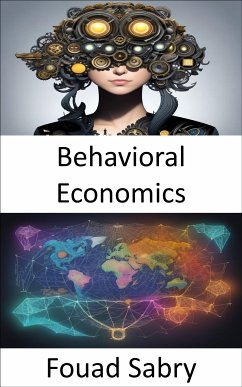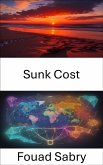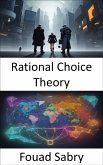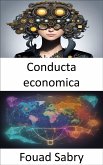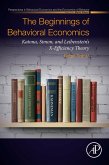What is Behavioral Economics
Behavioural economics is the study of the psychological, cognitive, emotional, cultural, and social aspects that are involved in the decisions that individuals or organizations make, as well as the ways in which these decisions differ from those that are implied by classical economic theory.
How you will benefit
(I) Insights, and validations about the following topics:
Chapter 1: Behavioral economics
Chapter 2: Cognitive bias
Chapter 3: Bounded rationality
Chapter 4: Homo economicus
Chapter 5: Sunk cost
Chapter 6: Daniel Kahneman
Chapter 7: Amos Tversky
Chapter 8: Prospect theory
Chapter 9: Decision theory
Chapter 10: Loss aversion
Chapter 11: Status quo bias
Chapter 12: Endowment effect
Chapter 13: Richard Thaler
Chapter 14: Mental accounting
Chapter 15: Libertarian paternalism
Chapter 16: Choice architecture
Chapter 17: Nudge (book)
Chapter 18: Heuristic (psychology)
Chapter 19: Cognitive bias mitigation
Chapter 20: Eldar Shafir
Chapter 21: Debiasing
(II) Answering the public top questions about behavioral economics.
(III) Real world examples for the usage of behavioral economics in many fields.
(IV) Rich glossary featuring over 1200 terms to unlock a comprehensive understanding of behavioral economics. (eBook only).
Who will benefit
Professionals, undergraduate and graduate students, enthusiasts, hobbyists, and those who want to go beyond basic knowledge or information for any kind of behavioral economics.
Behavioural economics is the study of the psychological, cognitive, emotional, cultural, and social aspects that are involved in the decisions that individuals or organizations make, as well as the ways in which these decisions differ from those that are implied by classical economic theory.
How you will benefit
(I) Insights, and validations about the following topics:
Chapter 1: Behavioral economics
Chapter 2: Cognitive bias
Chapter 3: Bounded rationality
Chapter 4: Homo economicus
Chapter 5: Sunk cost
Chapter 6: Daniel Kahneman
Chapter 7: Amos Tversky
Chapter 8: Prospect theory
Chapter 9: Decision theory
Chapter 10: Loss aversion
Chapter 11: Status quo bias
Chapter 12: Endowment effect
Chapter 13: Richard Thaler
Chapter 14: Mental accounting
Chapter 15: Libertarian paternalism
Chapter 16: Choice architecture
Chapter 17: Nudge (book)
Chapter 18: Heuristic (psychology)
Chapter 19: Cognitive bias mitigation
Chapter 20: Eldar Shafir
Chapter 21: Debiasing
(II) Answering the public top questions about behavioral economics.
(III) Real world examples for the usage of behavioral economics in many fields.
(IV) Rich glossary featuring over 1200 terms to unlock a comprehensive understanding of behavioral economics. (eBook only).
Who will benefit
Professionals, undergraduate and graduate students, enthusiasts, hobbyists, and those who want to go beyond basic knowledge or information for any kind of behavioral economics.
Dieser Download kann aus rechtlichen Gründen nur mit Rechnungsadresse in A, B, BG, CY, CZ, D, DK, EW, E, FIN, F, GR, H, IRL, I, LT, L, LR, M, NL, PL, P, R, S, SLO, SK ausgeliefert werden.

